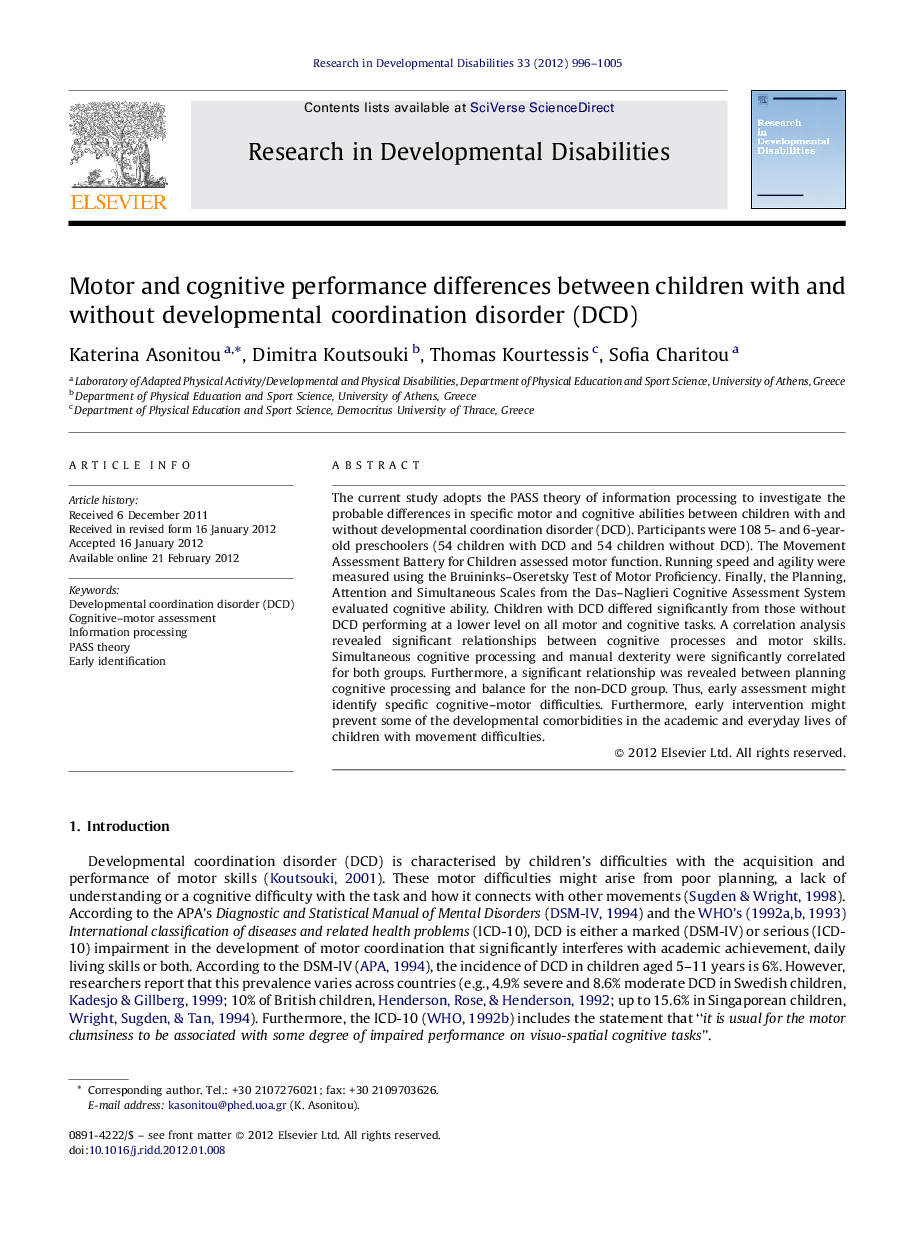ترجمه فارسی عنوان مقاله
عملکرد حرکتی و شناختی تفاوت بین کودکان با و بدون اختلال هماهنگی رشدی (DCD)
عنوان انگلیسی
Motor and cognitive performance differences between children with and without developmental coordination disorder (DCD)
| کد مقاله | سال انتشار | تعداد صفحات مقاله انگلیسی |
|---|---|---|
| 39389 | 2012 | 10 صفحه PDF |
منبع

Publisher : Elsevier - Science Direct (الزویر - ساینس دایرکت)
Journal : Research in Developmental Disabilities, Volume 33, Issue 4, July–August 2012, Pages 996–1005
ترجمه کلمات کلیدی
اختلال هماهنگی رشدی (DCD)؛ ارزیابی شناختی حرکتی؛ پردازش اطلاعات؛ نظریه PASS؛ شناسایی اولیه
کلمات کلیدی انگلیسی
Developmental coordination disorder (DCD); Cognitive–motor assessment; Information processing; PASS theory; Early identification

